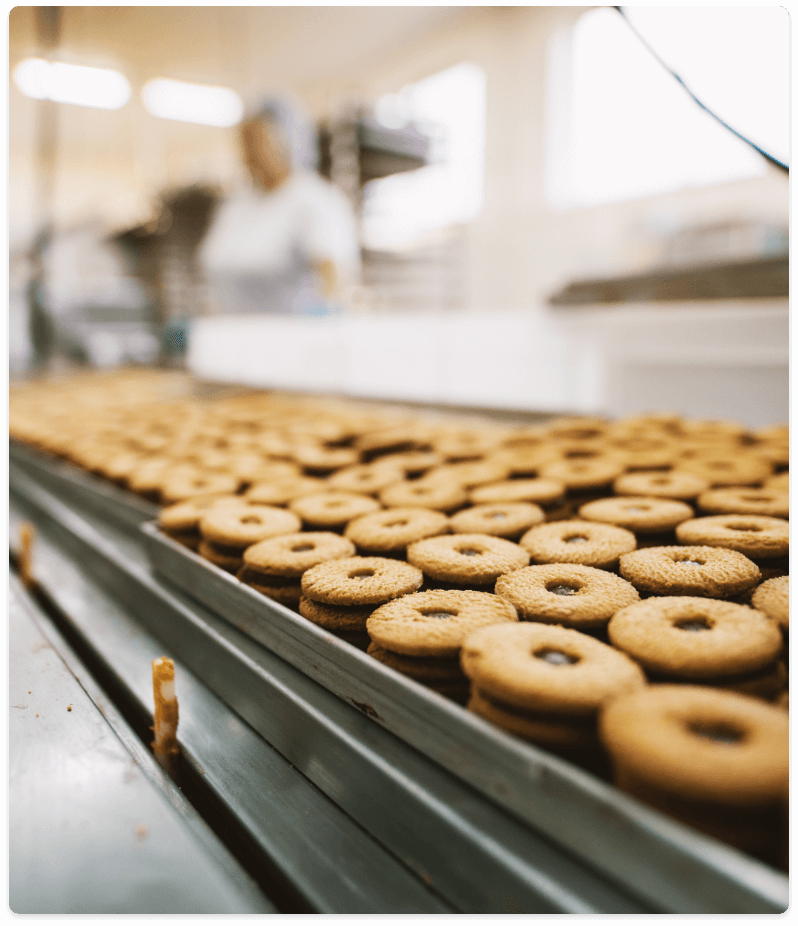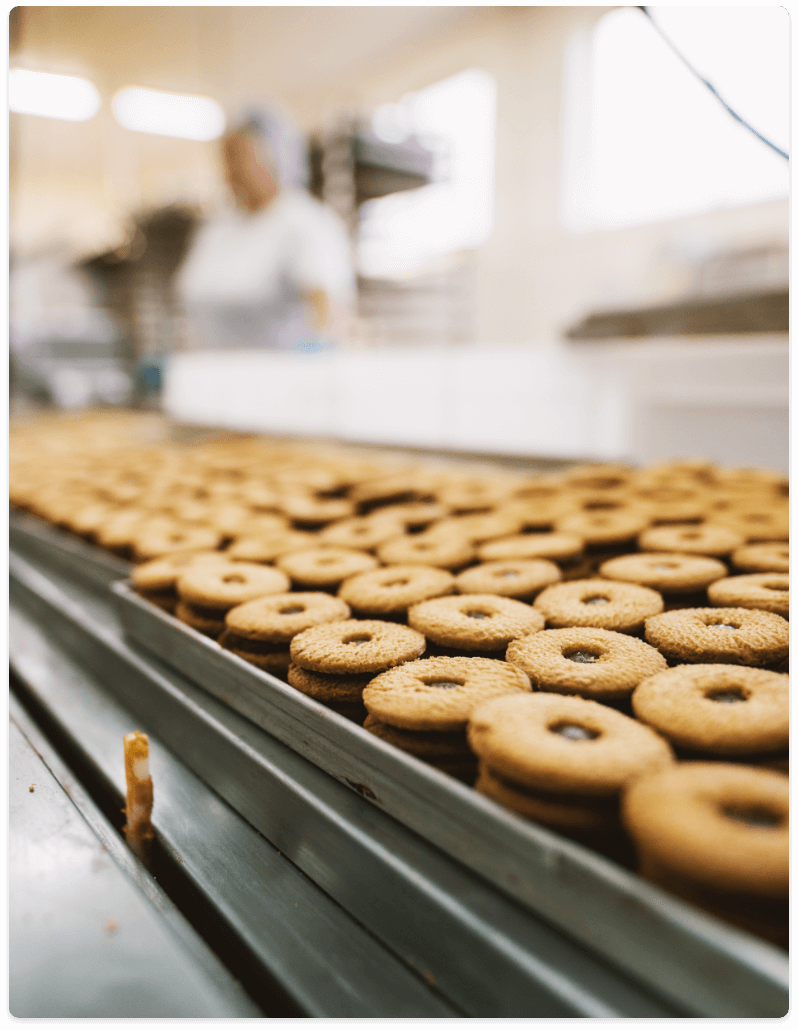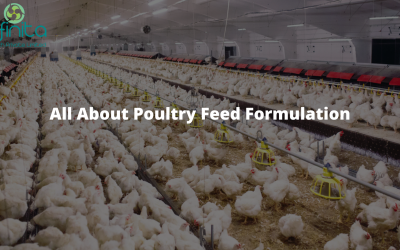Bakery Enzymes Manufacturer

Baking comprises the use of enzymes from three sources: the endogenous enzymes in flour, enzymes associated with the metabolic activity of the dominant microorganisms and exogenous enzymes which are added in the dough. The use of bakery enzymes as a supplement to the flour and dough has been generally followed and has also been used for flour standardization.
Bakery Enzymes are usually added to modify dough rheology, gas retention and crumb softness in bread manufacture, to modify dough rheology in the manufacture of pastry and biscuits, to alter product softness during cake production and to reduce acrylamide formation in baked goods. The Bakery enzymes can be added individually or in complex mixtures, which may act in a synergistic way in the production of baked goods, and their levels are usually very low.
Extra enzymes added to the dough improve control of the baking process, allowing the use of different baking processes, reducing process time, slowing-down staling, compensating for flour variability and substituting chemical additives
With our range of bakery enzymes, the softness of the bread remains intact and the shelf life is extended. The increase in softness results in relatively few returns of stale bread, which helps to control inventory and logistics of delivery, thus reducing bread waste. Using our enzymes imparts a fluffier, more flavorful texture to muffins, pound cakes, heavy cream cakes, sponge cakes, and more. It also stays fresh and soft for a long time.
In addition to their various benefits in baking, bakery enzymes have also played a crucial role in fostering collaboration between yeast manufacturers and the development of bread flour improvers. These enzymes have enabled yeast manufacturers to enhance their products’ performance by optimizing fermentation and gas production during the bread-making process. By working in synergy with bread flour improvers, bakery enzymes aid in achieving consistent dough rheology, improved gas retention, and ultimately, superior bread quality. This collaboration has paved the way for innovative solutions that address the challenges faced by both yeast manufacturers and bakers, resulting in bread products that boast enhanced texture, extended shelf life, and reduced waste.
Baking comprises the use of enzymes from three sources: the endogenous enzymes in flour, enzymes associated with the metabolic activity of the dominant microorganisms and exogenous enzymes which are added in the dough. The use of bakery enzymes as a supplement to the flour and dough has been generally followed and has also been used for flour standardization.
Bakery Enzymes are usually added to modify dough rheology, gas retention and crumb softness in bread manufacture, to modify dough rheology in the manufacture of pastry and biscuits, to alter product softness during cake production and to reduce acrylamide formation in baked goods. The Bakery enzymes can be added individually or in complex mixtures, which may act in a synergistic way in the production of baked goods, and their levels are usually very low.
Extra enzymes added to the dough improve control of the baking process, allowing the use of different baking processes, reducing process time, slowing-down staling, compensating for flour variability and substituting chemical additives
With our range of bakery enzymes, the softness of the bread remains intact and the shelf life is extended. The increase in softness results in relatively few returns of stale bread, which helps to control inventory and logistics of delivery, thus reducing bread waste. Using our enzymes imparts a fluffier, more flavorful texture to muffins, pound cakes, heavy cream cakes, sponge cakes, and more. It also stays fresh and soft for a long time.
In addition to their various benefits in baking, bakery enzymes have also played a crucial role in fostering collaboration between yeast manufacturers and the development of bread flour improvers. These enzymes have enabled yeast manufacturers to enhance their products’ performance by optimizing fermentation and gas production during the bread-making process. By working in synergy with bread flour improvers, bakery enzymes aid in achieving consistent dough rheology, improved gas retention, and ultimately, superior bread quality. This collaboration has paved the way for innovative solutions that address the challenges faced by both yeast manufacturers and bakers, resulting in bread products that boast enhanced texture, extended shelf life, and reduced waste.

Our Solutions
Fungal Alpha amylase
Enzyme to enhance Fermentation process and to give high loaf volume.

Enhances Fermentation Process

Improves Bread Volume

Improves Crumb Texture

Enhances Fermentation Process

Improves Bread Volume

Improves Crumb Texture
Gluco amylase
Enzyme for optimum dough crumb and crust colours for baked products.

Accelerates Yeast Fermentation

Optimum Dough Expansion

Intense Flavour And Colour

Accelerates Yeast Fermentation

Optimum Dough Expansion

Intense Flavour And Colour
Maltogenic amylase
Enzyme specially designed for improving shelf life and crumb softness.

Improves Shelf Life

Prevents Storage Retrogradation

Reduces Spoilage

Improves Shelf Life

Prevents Storage Retrogradation

Reduces Spoilage
Lipase
Modification of natural lipids in flour to strengthen the dough.

Increases Dough Tolerance

Improves Loaf Volume

Decreased Stickiness

Increases Dough Tolerance

Improves Loaf Volume

Decreased Stickiness
IMPROVERS
Enzyme based improvers designed for all types of baked goods

Enhances overall quality

Versatile uses

Offers consistent baked goods

Enhances overall quality

Versatile uses

Offers consistent baked goods
Xylanase
Enzyme based improvers designed for all types of baked goods

Enhances overall quality

Versatile uses

Offers consistent baked goods

Enhances overall quality

Versatile uses

Offers consistent baked goods
Related Articles
Choosing the Best Enzymes for Craft Distilling Spirits
Introduction to Enzymes in Craft Distilling What are Enzymes? Enzymes are biological catalysts that accelerate chemical reactions within living organisms. They're crucial for various processes, including digestion and metabolism. In craft distilling, enzymes play a...
All About Poultry Feed Formulation
Exogenous feed enzymes are added to the poultry feed to provide nutrition to poultry birds and improve their digestion. Poultry feed takes up the lion’s share of a poultry business with up to 70% of the total operating costs. To lower the feed costs, certain grains...
What is Enzyme-Mediated Extraction and the Enzymatic Process for Extracting Oil?
There is an increasing demand for edible oil all over the world. Edible oils are extracted from oilseeds and other oil-rich natural sources like sunflower, groundnut kernels, rice bran, coconuts, palm, soybean, rapeseeds, among other sources. Oilseeds thus are a...
FAQ’S
What is the role of alpha-amylase in Baking?
In baking, alpha-amylase helps to break down the starches in flour into sugars. This makes the dough easier to work with and helps to create a light and fluffy finished product.
What is fungal alpha-amylase?
Fungal alpha-amylase is an enzyme that catalyzes the hydrolysis of starch into maltose and glucose. It is used in baking as a dough strengthener and to control the rate of starch conversion into sugar. Fungal alpha-amylase is also known as glucoamylase.
What are the enzymes used in the bakery industry?
Enzymes such as Fungal Alpha Amylase, Gluco Amylase, Maltogenic Amylase and Lipase are used for everything from dough development to shelf life.
What is glucose amylase used for?
Gluco amylase is an enzyme produced by bakery enzymes manufacturers to break down starch into maltose and glucose. This enzyme is often used in the baking industry to help produce a more consistent and predictable end product. It can also be used to improve the texture and flavor of baked goods.
What is Maltogenic amylase?
Maltogenic amylase is an enzyme that catalyzes the conversion of starch to maltose. It is produced by the fungus Aspergillus oryzae, and is used in the brewing and baking industries to produce maltose from starch. Maltogenic amylase is also used by maltogenic amylase manufacturers in the production of biofuels, and as a food additive to improve the texture and flavor of food products.
What are the applications of lipase in the food industry?
Lipase is a type of enzyme produced by bakery enzymes manufacturers that catalyzes the hydrolysis of lipids. In the food industry, it is used to improve the taste and texture of food products, as well as to increase the shelf life of food items. Lipase is also used in the production of biodiesel fuel.
Looking For Enzymes?
We’re Here To Help
Looking For Enzymes?
We’re Here To Help
QUICK LINKS
HOME
ABOUT
CERTIFICATIONS
BLOGS
MEDIA
CAREERS
FAQs
CONTACT
PRODUCTS
© 2024, Infinita Biotech Private Limited. All rights reserved.
Designed by Kerkar Media



